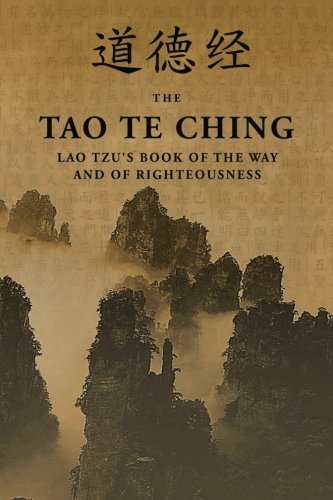Title: The Tao Te Ching: Lao Tzu’s Book of the Way and of Righteousness
Translator/Commentator: Charles Johnston
Genre: Religion
Trigger Warnings: Outdated racial terminology
Back Cover:
From an older edition.
The Tao Teh King (Taoteching) forms the fundamental core of modern Taoist philosophy and has informed the beliefs and mode of life of the people of China for 2500 years. For all those who seek peace, contentment, harmony and balance in life, the Tao Teh King is an indispensable resource. Lao Tse’s words speak directly to the heart with simple, direct and profound wisdom addressing the core principles of the art of living well.
The translation and commentary presented here was completed between 1921 and 1923 and serialized in the periodical magazine The Theosophical Quarterly. The society responsible for the periodical was dissolved some fifteen years later, leaving this translation to lay dormant these many years. It is reproduced verbatim, but with an adjustment in formatting—providing the translation itself, in whole, prior to the commentary—the addition of a foreword, and of additional notes.
Review:
In retrospect, I should have done more research before picking a translation, and also I’m not sure how good of a version this was to read.
To start with, I didn’t realize this had commentary with it. (I honestly don’t know how I missed that, but I did.) Secondly, this translation and commentary was done by a white guy in the 1920s. Charles Johnston, according to his Wikipedia page, was really into the occult and “Oriental studies” despite his only experience with non-European people being assisting with the British colonization of India until he caught malaria. So despite the commentary being interesting, I don’t know how trustworthy or accurate it actually is.
To give Charles a little credit, he does cite several actual Chinese sources and quote Chinese commentators in a bunch of his commentary bits. But he also occasionally cites them and then says he thinks that’s wrong and here’s what he thinks, so take that with a grain of salt. He also draws a lot of comparisons between the Tao Te Ching, the Bhagavad Gita, and the Bible, seemingly trying to make the point that “see? all this ancient wisdom stuff has the same ideas!” so that was a little weird.
The translation seemed pretty solid to me, from my extremely limited perspective. I’m not sure how much I trust the commentary, though. The actual text of the Tao Te Ching was interesting and I’m glad I read it, but I want to do some more research and maybe check out some other, less colonialist sources before I make a judgement on the commentary.

